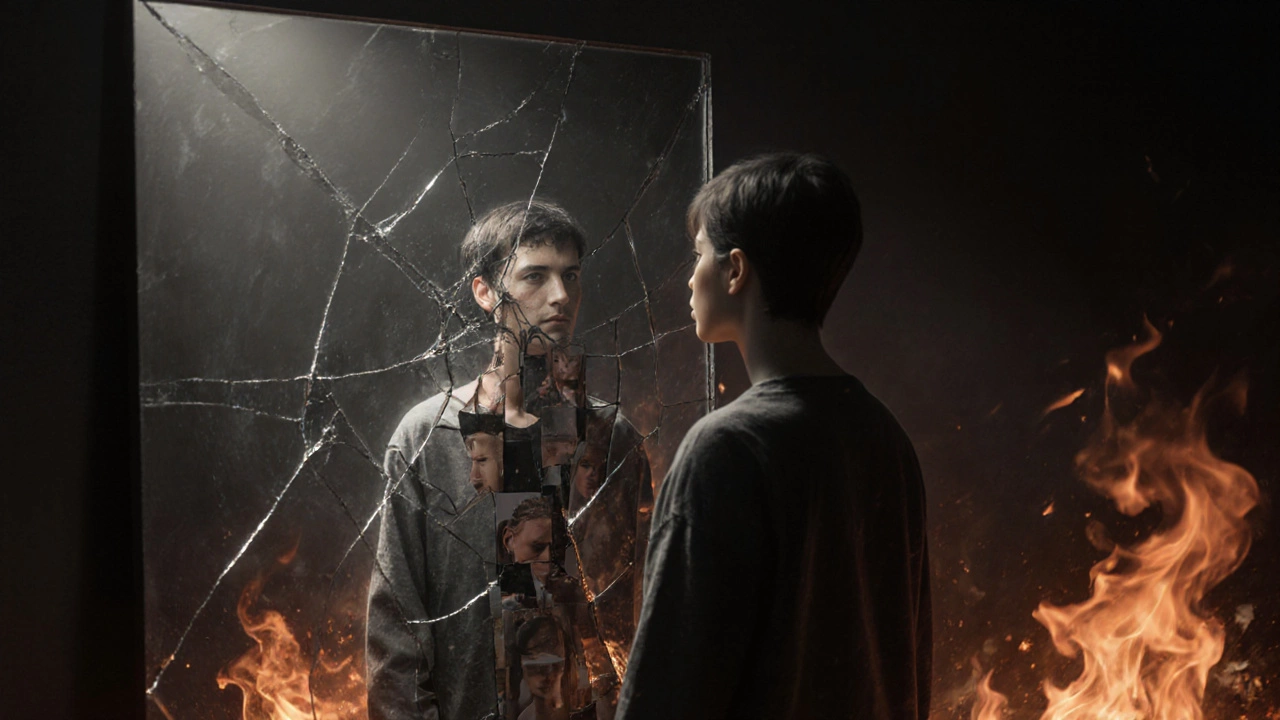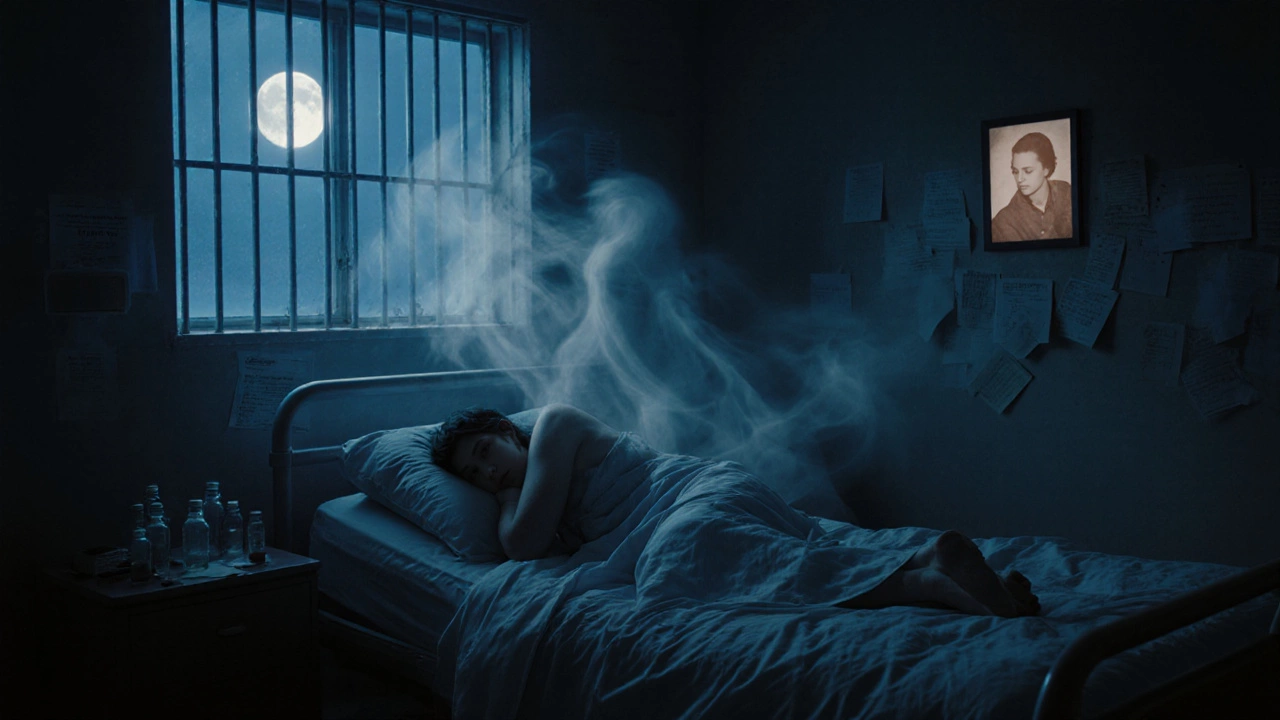What Is the Hardest Mental Illness to Live With?
 Nov, 16 2025
Nov, 16 2025
Mental Health Support Assessment
How Are You Feeling Today?
This tool is for informational purposes only. It does not diagnose or treat mental health conditions. Always consult a medical professional for diagnosis.
Your Potential Support Pathways
*Resources based on your responses. Always consult a medical professional for diagnosis.
There’s no single answer to what the hardest mental illness to live with is-but if you’ve ever sat in silence, wondering if you’ll ever feel like yourself again, you already know it’s not about rankings. It’s about the weight you carry when no one else sees it. Some illnesses make you scream. Others make you disappear. And some? They make you hate the person staring back in the mirror.
Borderline Personality Disorder: The Invisible War Inside
Borderline Personality Disorder (BPD) doesn’t come with a label you can point to. No cast on your arm, no scan showing damage. Just a mind that feels like it’s on fire 24/7. People with BPD often describe it as emotional lightning-sudden, intense, and leaving nothing but ash. One moment you’re loving someone with your whole soul. The next, you’re convinced they’ve betrayed you, even if they didn’t say a word.
It’s not just mood swings. It’s identity erosion. Who are you when you can’t hold onto a sense of self? You might change your entire personality depending on who you’re with. One day you’re an artist. The next, you’re a corporate drone. You don’t choose these shifts-they happen because your inner world is unstable.
Self-harm and suicidal thoughts are common. Not because they want to die, but because the emotional pain feels unbearable. Studies from the National Institute of Mental Health show that up to 10% of people with BPD die by suicide. That’s higher than any other psychiatric disorder except schizophrenia. And yet, BPD is still misunderstood-even by some clinicians.
Treatment-Resistant Depression: When Hope Runs Out
Depression isn’t just sadness. That’s the myth. Treatment-resistant depression is when every pill, every therapy, every lifestyle change fails. You try SSRIs. You try SNRIs. You try ketamine. You try ECT. You try yoga, sunlight, journaling, meditation. Nothing sticks. You’re told you’re “getting better,” but inside, you’re sinking deeper.
What makes this form of depression so crushing is the isolation. Everyone thinks you’ve had enough chances. Friends stop asking. Family stops pushing. You start believing you’re broken beyond repair. A 2023 study in The Lancet Psychiatry found that nearly 30% of people with major depression don’t respond to two or more antidepressants. For those people, the future feels like a closed door.
And the guilt? It’s brutal. You feel like a burden. Like you’re failing everyone-even the people who love you. You want to be better. You try. But your brain won’t let you. It’s not laziness. It’s biology. And when biology wins, hope becomes a luxury you can’t afford.
Schizophrenia: Living in a World That Doesn’t Exist
Imagine hearing voices that aren’t there. Not just whispers. Commands. Insults. Conversations between people who don’t exist. Now imagine believing them. That’s schizophrenia. Not the cartoon version with multiple personalities. This is the real thing: hallucinations, delusions, disorganized thinking. And the worst part? You often don’t know you’re ill.
People with schizophrenia may believe they’re being watched, followed, or controlled by external forces. They might think their thoughts are being stolen. Or that strangers are sending them secret messages through TV static. When you’re trapped in that reality, treatment feels like an attack. Why would you take a pill to stop hearing your dead mother talk to you-when she’s the only one who still speaks to you?
Medication helps. But side effects can be brutal: weight gain, tremors, numb emotions. Many stop taking them. Then the cycle starts again: hospitalization, stigma, isolation. The average life expectancy for someone with schizophrenia is 20 years shorter than the general population. Not because of violence-most are nonviolent-but because of neglect, poor healthcare access, and suicide.

Complex PTSD: The Scars You Can’t See
PTSD after a car crash? That’s one thing. Complex PTSD comes from years of abuse-emotional, physical, sexual-often starting in childhood. It’s not a single event. It’s a lifetime of being unsafe. Your nervous system learns to stay on high alert. Even when you’re safe, your body thinks you’re in danger.
You might shut down completely. Or explode without warning. You struggle to trust anyone. Even love feels like a trap. You push people away because you’re terrified they’ll leave-or hurt you. You might have flashbacks triggered by smells, sounds, or the way someone looks at you.
Therapy helps, but it’s slow. And expensive. Many can’t afford it. And even when they do, finding a therapist who understands complex trauma is rare. The NHS in the UK has long waiting lists. Private therapy? Costs £80 to £150 per session. For someone living on disability? Impossible.
Why These Illnesses Are the Hardest
What makes these conditions harder than others isn’t just the symptoms. It’s the silence around them. People don’t understand. They say things like:
- “Just snap out of it.”
- “You’re overreacting.”
- “I had a rough day too.”
- “Why can’t you just be normal?”
These aren’t just hurtful-they’re dangerous. They make people feel like their pain isn’t real. And when you believe that, you stop asking for help.
There’s also the lack of funding. Mental health gets less than 6% of the NHS budget. For conditions like BPD and complex PTSD, there are barely any specialized services. You’re often bounced between GPs, emergency rooms, and crisis teams that don’t know how to help.
Charities like Mind, Rethink Mental Illness, and the Borderline Personality Disorder Charity UK do what they can. But they’re stretched thin. They run peer support groups, helplines, and advocacy campaigns. But they can’t replace clinical care. They can’t replace housing. They can’t replace a living wage.
What Helps-Even When Nothing Else Does
Recovery isn’t linear. But some things make a difference:
- Dialectical Behavior Therapy (DBT)-proven to reduce self-harm and improve emotional regulation in BPD.
- EMDR-helps reprocess trauma in complex PTSD.
- Peer support-talking to someone who’s been there. No judgment. No pity.
- Stable housing-mental illness worsens without safety and routine.
- Access to medication without stigma-no one should feel ashamed for needing help.
And sometimes, just knowing someone believes you-even if they don’t understand-is enough to keep going.

How to Help
If you care about someone with a severe mental illness, here’s what actually works:
- Don’t try to fix them. Just listen.
- Ask: “What do you need right now?” Not “Why are you like this?”
- Support charities that fund long-term care, not just awareness campaigns.
- Advocate for better mental health funding in your community.
- Challenge stigma when you hear it-even in casual conversation.
You don’t need to be an expert. You just need to show up.
It’s Not a Competition
Some people ask: “Which illness is the worst?” As if suffering has a leaderboard. But pain doesn’t rank. It just is.
Someone with BPD might feel like they’re drowning in emotion. Someone with treatment-resistant depression might feel like they’re buried alive. Someone with schizophrenia might feel like they’re trapped in a nightmare no one else can see.
The hardest illness to live with? The one you’re living with right now. And if you’re reading this and you’re struggling-you’re not alone. Even if it feels like it. Even if no one else understands. You’re still here. And that matters.
Is borderline personality disorder the hardest mental illness to live with?
Many people with BPD describe it as one of the most painful mental illnesses because of the intense emotional instability, fear of abandonment, and identity issues. It’s not officially ranked as the "hardest," but research shows it has one of the highest suicide rates among psychiatric disorders. What makes it especially difficult is the stigma-many people think it’s just "attention-seeking," when in reality, it’s a deeply painful condition rooted in trauma and neurobiology.
Can you recover from treatment-resistant depression?
Yes, recovery is possible-even when standard treatments fail. Options like ketamine therapy, transcranial magnetic stimulation (TMS), and psychotherapy tailored to chronic depression have helped many people regain function. It often takes time, trial, and support. The key is persistence and finding the right team. Recovery doesn’t mean feeling happy all the time. It means having moments of peace, and knowing they’ll come again.
Why don’t more people understand complex PTSD?
Complex PTSD stems from long-term trauma, often in childhood, and it doesn’t fit the classic PTSD model based on single events like war or accidents. Because it’s not as widely taught in medical schools, many professionals misdiagnose it as personality disorders or anxiety. This leads to ineffective treatment and more shame for the person suffering. Awareness is growing, but progress is slow.
Do people with schizophrenia ever get better?
Many do. With consistent treatment-medication, therapy, and social support-people with schizophrenia can live full, independent lives. Some work, raise families, and contribute to their communities. Recovery looks different for everyone. For some, it’s managing symptoms. For others, it’s rebuilding trust in the world. The biggest barrier isn’t the illness-it’s the lack of access to care and the stigma that keeps people from seeking help.
How can I support someone with a severe mental illness?
Listen without trying to fix. Don’t minimize their experience. Ask how you can help-maybe it’s accompanying them to an appointment, helping them apply for benefits, or just sitting with them in silence. Encourage them to connect with peer support groups. And if you’re able, donate to or volunteer with organizations that provide long-term care, not just crisis intervention.
What Comes Next?
If you’re living with one of these illnesses, know this: your pain is valid. Your struggle matters. You don’t have to be cured to be worthy of care. And you don’t have to suffer alone.
Reach out to a charity. Call a helpline. Text a friend. Write it down. Say it out loud. However small the step, it counts.
And if you’re not living with it? Speak up. Challenge the myths. Fund the services. Demand better. Because mental health isn’t a personal failure. It’s a societal one-and fixing it takes all of us.
